Key Highlights
- Singapore and Zurich are now seen as the most expensive cities in the world for people moving for work.
- Their high cost of living comes from strong economies, strong currencies, and not enough housing.
- Other cities that often rank among the most expensive cities include Hong Kong, Geneva, New York City, Los Angeles, Paris, Copenhagen, Tel Aviv, and San Francisco.
- Even though these cities are expensive, they offer high salaries, many job types, well-known universities, and rich culture, which attract people worldwide.
- If you are on an international assignment, it is important to understand and adapt to these higher costs when you move.
In today’s global world, knowing the cost of living in big cities is very important. This is especially true for people thinking about moving or taking international jobs. Some cities have a very high cost of living, often higher than the global average. This makes us wonder – what are the most expensive cities in the world? What causes their high prices?
Exploring the World’s Most Expensive Cities
Determining the world’s most expensive cities means looking at several things. These include housing, transportation, groceries, healthcare, and entertainment. The Economist Intelligence Unit (EIU) and Mercer are trusted sources. They provide detailed surveys and rankings on the cost of living. Many businesses use these to understand the cost for their employees who work globally.
Now, let’s see some cities that often appear at the top of these lists. Each city has its own mix of economic factors and quality of life.
1. Singapore – A Costly Cosmopolitan Gem
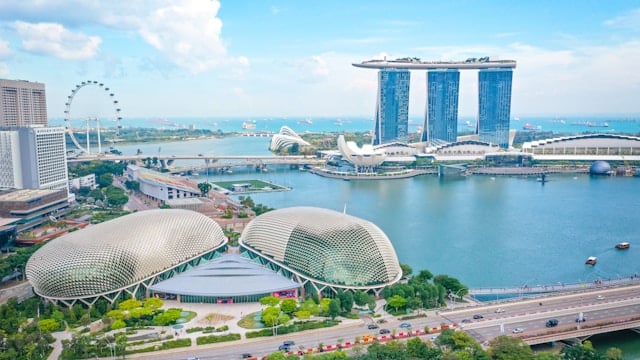
Singapore is a lively city-state in Southeast Asia. It often ranks as one of the most expensive cities in the world. In 2023, it was at the top spot according to the EIU. Several connected factors cause its high cost of living. Singapore is a key financial center that attracts a skilled workforce. This leads to a high demand for housing, which raises real estate prices.
The city also has strong infrastructure and great public services. These improve the quality of life but also add to overall expenses. Singapore’s cost of living index shows its strong economy and high living standards. Although essential goods and services can cost more than in other cities, Singapore provides a safe, efficient, and vibrant cultural environment. This makes it a popular place to live, even with the high costs involved.
2. Zurich – Switzerland’s Priciest City
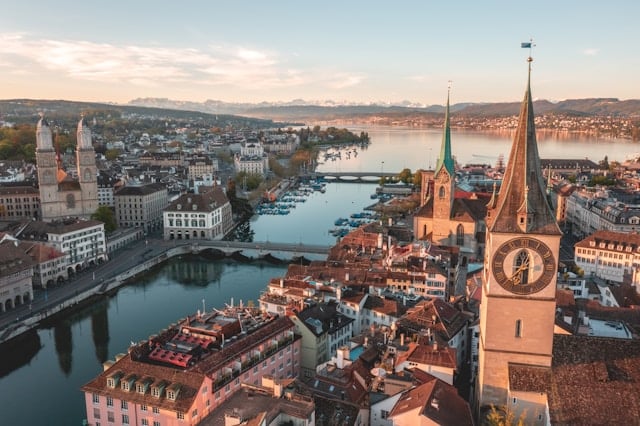
Zurich is in the Swiss Alps and is often one of the most expensive cities in the world. It is a key global financial center and attracts wealthy people and businesses. This makes the real estate market very competitive and raises property prices. Also, the strength of the Swiss franc affects the cost of living, as imported goods and services can be costly.
Even with these high costs, people living in Zurich enjoy a great quality of life. The city has excellent public transport, low crime rates, beautiful nature, and good infrastructure. These things, along with a strong economy and a solid safety net, draw many residents and expatriate employees, even though they may need to adjust financially.
3. Hong Kong – High Living Costs in a Compact Area
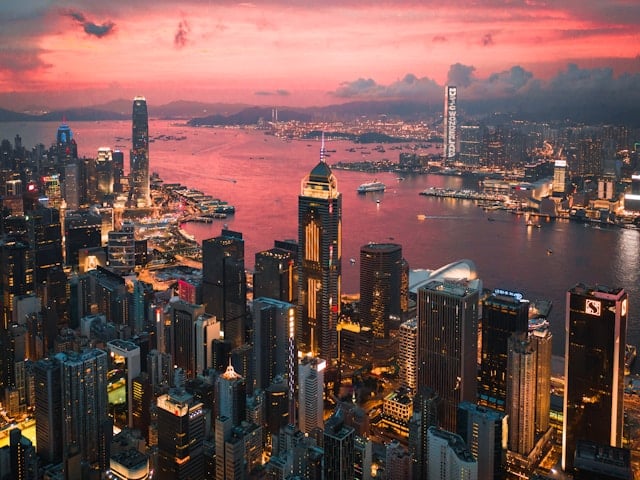
Hong Kong is a Special Administrative Region of China. It is known for its lively economy and is a major financial center. But, it is also one of the most expensive cities in the world. This is mainly because housing costs are very high. There is not much land, and the population is dense. Because of this, property prices and rents in Hong Kong are some of the highest around the globe.
The overall cost of living is made worse by high prices for goods and services. This includes everything from food to transport. Even though living in Hong Kong is costly, many other Asian cities, especially busy business hotspots, have similar issues. They struggle to find a balance between affordable living and economic growth.
4. New York City – The American Dream at a Premium
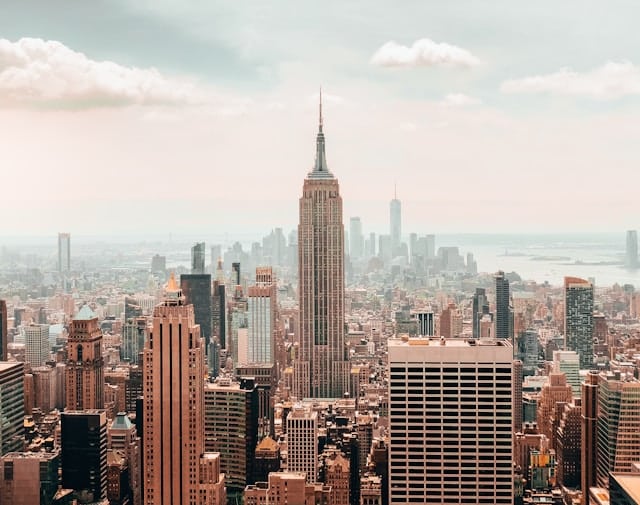
New York City, known as the “Big Apple,” is one of the most expensive cities in the world. It often shows up in the top ten lists for high costs. The city’s role in finance, media, culture, and fashion attracts people from everywhere. This makes the housing market very tough and competitive.
Manhattan, the most crowded area of the city, is famous for its high real estate prices. Many find it hard to afford to live there. The cost of living in New York City is also high in other areas, like grocery prices, transportation, and fun activities. Other American cities are seeing rising living costs too, but New York City tends to be a model for these changes.
5. Geneva – Swiss Luxury and High Expenses
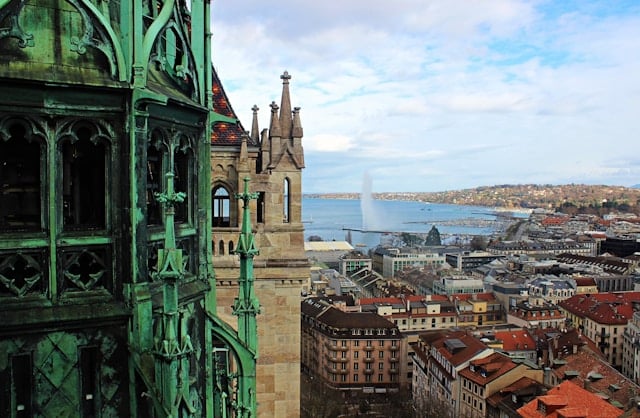
Geneva, Switzerland, sits by the beautiful Lake Geneva. It is often rated as one of the most expensive cities in the world. The city is famous for its high quality of life, luxury goods, and its role as a major place for diplomacy. This attracts wealthy people, making the demand go up and costs even higher.
The cost of living in Geneva shows the strong economy of Switzerland and the value of its currency. People who live there enjoy great public services, a safe community, and lovely views. However, the daily expenses in Geneva need a lot of money, especially for housing and extra spending.
6. London – The UK’s Financial Heart with Steep Living Costs

London is the capital of the United Kingdom and one of the most expensive cities in the world. It is a major center for finance, business, culture, and tourism. Many wealthy people live here. The high demand for homes, along with limited supply, makes the real estate market very costly. The high prices also affect other things like groceries, transportation, and activities for fun.
Even with the high cost of living, London remains a global hub. Its rich history and cultural attractions continue to attract people from different backgrounds. If you are thinking of moving to London for work, remember to consider the cost of living.
Factors Contributing to High Living Costs in These Cities
Many things affect the high cost of living in cities like Singapore, Zurich, Hong Kong, New York City, Geneva, and London. There is a mix of global economics and local market factors. Understanding these details is important for people and businesses in these costly cities.
Here are some main points about how these factors affect the cost of living.
Real Estate and Rental Prices
A main reason is the rising cost of housing. In cities like Hong Kong and Singapore, there is not much land. This makes real estate prices very high. Many high-paid workers in fields like finance and technology are moving to these places. This adds to the demand for homes and drives up prices. The shortage of homes makes rent expensive and hard to find.
The type of home affects prices too. Bigger or fancier apartments cost more. Even a simple apartment in good areas of these cities may still cost a lot for many people. This situation needs careful thought and budgeting, especially for those moving from places where housing costs less.
Cost of Daily Essentials and Services
Beyond housing, daily essentials and services also make living in these cities expensive. Imported goods often have high tariffs and shipping costs, so they can be much more costly. Expenses for groceries, eating out, transportation, healthcare, and childcare can add up fast. Even small costs, like a cup of coffee or a haircut, show that everything is pricier in these cities.
Also, many rich people live in these global centers. The local culture often favors luxury, which drives up prices for goods and services. Businesses that serve wealthy customers often set higher prices, affecting the total cost of living for everyone else. Because of this, you need a higher income to maintain a comfortable lifestyle in these areas.
Comparing Living Costs: Expensive Cities vs. Average Global Cities
To fully grasp the cost difference, let’s compare living expenses in these expensive cities with global averages. While specific costs fluctuate based on factors like location, accommodation preferences, and lifestyle choices, this comparison provides a general overview of the potential financial implications. This helps highlight the significant financial adjustments individuals might need to make when considering a move to these metropolises.
|
Expense Category |
Expensive City (e.g., New York City) |
Average Global City (e.g., Berlin) |
|
Rent for a one-bedroom apartment (city center) |
$3,000 – $5,000+ |
$1,000 – $2,000 |
|
Monthly transportation pass |
$100 – $150 |
$50 – $100 |
|
Groceries (for a single person, per week) |
$150 – $250+ |
$75 – $150 |
|
Restaurant meal (mid-range) |
$25 – $50 per person |
$15 – $30 per person |
Housing and Accommodation Differences
Comparing the costs of housing and accommodation between very expensive cities and average global cities shows big differences. The biggest change is in the cost of renting or buying a home. In cities like Hong Kong, Singapore, and New York City, both renting and buying can be very expensive. They often take up a large part of people’s income compared to cheaper cities.
These high costs often happen because there is little space and a lot of demand, which is due to these cities being major business and financial centers. This results in smaller homes that cost more, especially in the city center. On the other hand, average global cities, while having their own housing trends, usually provide better-priced options, even in central areas. This gives people more choices for their living situations.
Food, Transportation, and Utility Costs Comparison
When we look at the cost of everyday things like food, transport, and utilities, the differences between expensive cities and normal global cities are very clear. Food prices can be higher here, especially for imported items and when eating out. This is due to more fancy restaurants and a focus on convenience in places like New York and London.
Transportation costs also play a big role. Even though cities like London and New York have good public transport systems, their fares are high. On the other hand, many average global cities offer cheaper public transport options.
Utility bills are another factor to consider. Important expenses like electricity, gas, and internet can make living in these cities more costly. The higher costs often come from more energy use, better infrastructure, and a lot of tech-savvy people and businesses.
Here is a breakdown:
- Food Prices: Dining out, imported goods, and premium ingredients are often pricier.
- Transportation Costs: Public transportation fares and fuel costs tend to be higher.
- Utility Bills: Electricity, gas, and internet services reflect the higher costs of living.
Quick Summary
In conclusion, the world’s most expensive cities mix luxury with high living costs. Things like real estate prices, daily needs, and services make these cities costly. Knowing the differences in accommodation and living costs between these cities and regular cities can help you understand more. These cities might be hard to afford, but they also offer amazing experiences and chances. Looking at the living costs in different areas can help you choose your lifestyle better. Whether you want busy big cities or calm places, each city has its own story in the global living picture.
Frequently Asked Questions
What makes a city expensive to live in?
A city’s cost of living is influenced by the supply and demand for real estate. It also depends on the number of jobs available and how much they pay. The cost of services, like healthcare and education, plays a role too. Lastly, daily needs such as transportation, groceries, and utility prices affect the overall cost of living.
Can cost of living adjustments make these cities more affordable?
Cost of living adjustments are often given to expatriate employees. They help ease higher costs in a city, but they do not always make it affordable. Salaries change to match the local cost of living. However, this does not take away the effect of high prices on basic items.
How do salary levels compare in the world’s most expensive cities?
Salary levels in the most expensive cities around the world are usually higher. This increase helps cover the higher cost of living. These cities draw in talented people who want pay that matches their living expenses.
Are there any cities that have become more affordable recently?
The cost of living can change. Some cities may seem more affordable when their real estate markets shift. Changes in inflation rates and currency exchange rates can also play a role. Economic changes can affect many living costs. This might make some cities more budget-friendly for people.